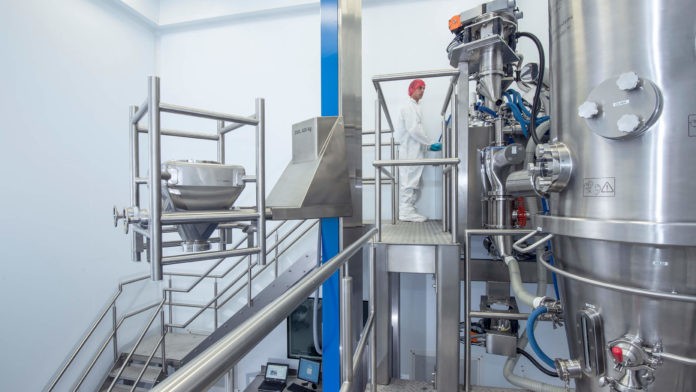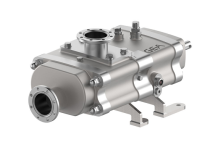During the recent ‘Granulation and Tableting Seminar’ in Mannheim, Germany (held from 4 to 6 February 2020), organized by Concept Heidelberg, GEA’s Harald Stahl, head of Innovation and Strategy Pharma and Healthcare, took to the podium with Michael Braun, head of Late Stage Development at Boehringer Ingelheim, and Karl G Wagner, professor for Pharmaceutical Technology and Biopharmacy at the University of Bonn, to discuss the fundamentals of granulation and tableting.
With a particular focus on how to avoid capping, sticking and weight and content fluctuations, the comprehensive program covered “Everything from raw material characterization, fluid bed granulation, high-shear processing and roller compaction to handling highly potent compounds and a comparison of the various available technologies,” noted Dr Stahl.
Hosting 35 participants from German-speaking countries (DACH), the audience comprised representatives from big pharma companies, smaller organizations, and engineering businesses. “We had an interesting mix of R&D professionals, production staff, and personnel from other functions, such as quality control and engineering,” added Harald.
With the aid of a live webcam, for instance, Wagner demonstrated the compression behavior of materials affected by plastic deformation (with plasticine), a brittle fraction (with cornflakes), and elastic deformation. He also showed how the addition of a lubricant could help to avoid material sticking to punches and dyes while at the same time, reducing the binding materials affected by plastic deformation. Braun also gave an industry perspective on the ‘fundamental’ parts of the program, which was an excellent complement to Stahl’s presentation and valuable addition to the agenda.
The take-home message was that although most tableting problems only occur at the production stage, the root cause is generally either an upstream process issue (such as granulation) or a formulation error.
“It’s often the case that the R&D team develops an oral dosage form that works perfectly well on a slow-running benchtop press, but doesn’t deliver the same results when scaled up to an industrial machine,” observed Harald.
“The event showcased the triangle of an all-inclusive approach to raw materials, fundamentals of granulation and tableting, and the influence of those raw materials on compression behavior. It also highlighted that the root cause of tableting issues is most often not the press and reinforced the notion that critical decisions need to be made early on during development. This is when collaboration is key to ensuring that when a formulation reaches commercial-stage production, industrial-scale machines are capable of reaching the output values that they’ve been designed to achieve, problem-free,” Harald concluded.









